Are you looking to enhance your talent acquisition strategies but not sure where to start? Navigating the competitive job market can be challenging, yet knowing the right approaches can set your organization apart from the rest. From leveraging technology to foster a diverse candidate pool to creating an engaging employer brand, there are numerous tactics that can help you attract top talent. Join us as we dive deeper into these effective strategies and explore how they can transform your recruitment process!

Personalized Candidate Engagement
Personalized candidate engagement in talent acquisition involves utilizing tailored communication to create a unique experience for each applicant. Strategies employ advanced methodologies like data analytics and artificial intelligence to assess individual profiles, matching them to specific roles within organizations. Fostering a connection is crucial, with personalized outreach evident through customized emails and social media interactions. Furthermore, candidate personas defined by interests, skills, and previous experiences enhance engagement efforts, leading to improved candidate retention rates. Events such as virtual career fairs or personalized interviews can provide candidates a deeper insight into company culture and values. Implementing these practices significantly boosts overall recruitment effectiveness, ultimately attracting high-quality candidates who align closely with corporate vision and goals.
Data-Driven Recruitment Analytics
Data-driven recruitment analytics leverages quantitative data to refine talent acquisition strategies, enhancing the hiring process's efficiency. Key performance indicators (KPIs) such as time-to-hire (the average number of days to fill a position) and quality of hire (often measured through employee performance metrics) provide invaluable insights. Advanced analytics techniques, including predictive modeling and machine learning algorithms, can identify trends in applicant sources, enabling organizations to focus efforts on the most successful recruitment channels. Data visualization tools, such as Tableau or Power BI, allow recruiters to present findings clearly, facilitating decision-making processes. Companies increasingly employ applicant tracking systems (ATS), like Greenhouse or Lever, to gather and analyze recruitment data in real-time, leading to more informed hiring decisions and improved candidate experiences. The ultimate goal centers on creating a more strategic, informed, and efficient recruitment framework.
Employer Branding Enhancement
Enhancing employer branding is crucial for attracting top talent and retaining skilled employees in competitive industries like technology, healthcare, and finance. Strategies include developing a strong online presence through platforms such as LinkedIn and Glassdoor, showcasing company culture and values, and sharing employee testimonials. Participation in industry events such as career fairs, conferences, and university recruitment drives can significantly boost visibility. Implementing employee referral programs that incentivize current staff to recommend candidates can further strengthen recruitment efforts. Regularly updating company websites and social media profiles with engaging content about workplace achievements, diversity initiatives, and community involvement will create a positive image. Additionally, leveraging data analytics to measure the effectiveness of branding strategies will help refine approaches.
Inclusive Diversity Practices
Inclusive diversity practices in talent acquisition are essential for fostering a representative workforce. Organizations like Google and Microsoft have implemented unconscious bias training programs, ensuring recruiters recognize and mitigate biases during the hiring process. Statistics reveal that diverse teams can outperform homogeneous ones by up to 35%, demonstrating the tangible benefits of inclusive hiring. Utilizing tools such as AI-driven resume screening can help eliminate biased language, promoting equal opportunity for candidates from various backgrounds. Additionally, partnering with diverse professional organizations and attending inclusive job fairs can broaden the talent pipeline, creating a more dynamic and innovative workplace culture.
Streamlined Onboarding Process
Optimizing the onboarding process enhances employee integration within corporate environments, significantly impacting retention rates. A streamlined onboarding experience, typically spanning the first 90 days, introduces new hires to company culture, policies, and team dynamics. This period involves structured training sessions, often held at corporate headquarters, aimed at familiarizing employees with job responsibilities and resources. Engagement tools, such as mentorship programs and social integration activities, promote relationship-building among teammates. Data from recent studies shows organizations with effective onboarding programs can improve employee retention by up to 82%, ultimately leading to increased productivity and job satisfaction within the workforce.
Letter Template For Talent Acquisition Strategies Samples
Letter template of effective talent acquisition strategies for startups.
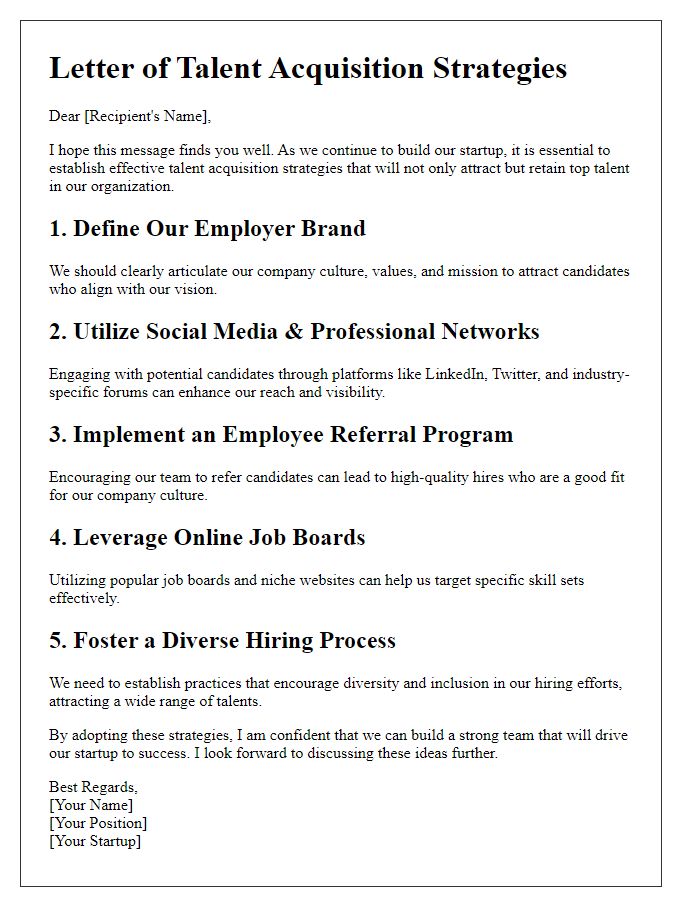
Letter template of innovative talent acquisition strategies for large enterprises.
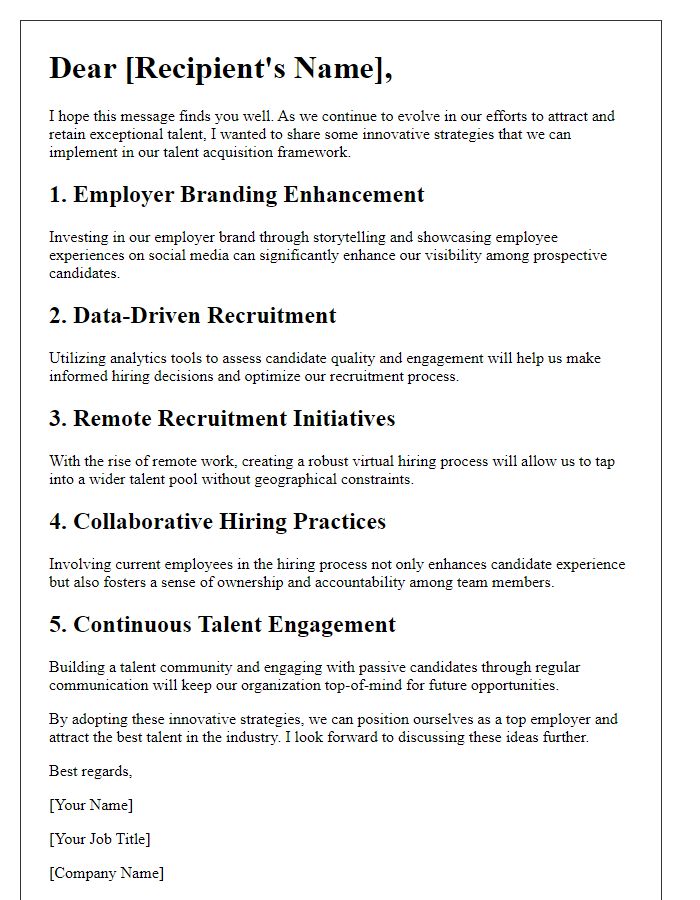
Letter template of sustainable talent acquisition strategies for nonprofit organizations.
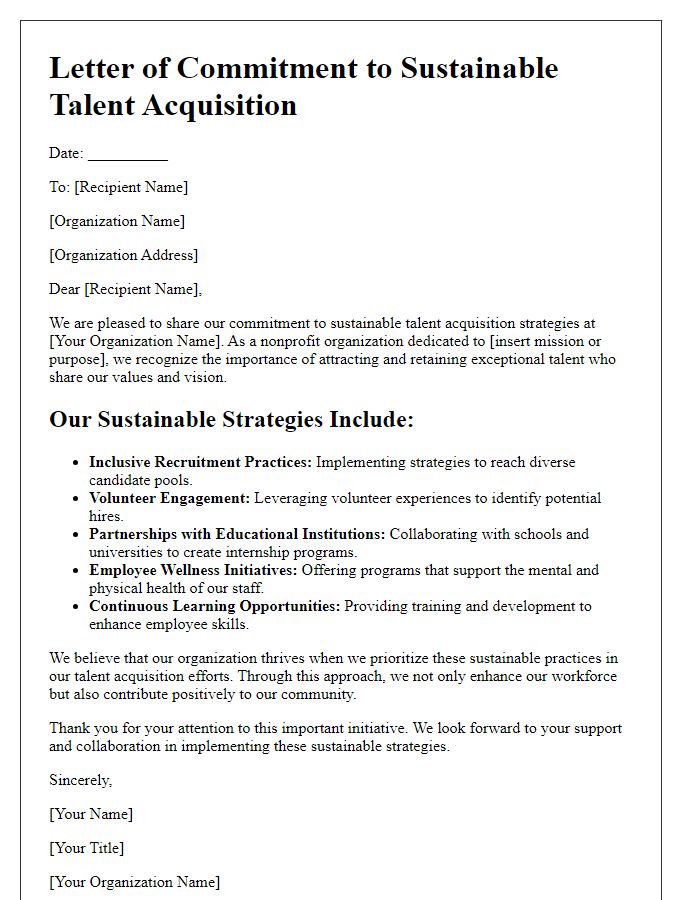
Letter template of digital talent acquisition strategies for tech companies.
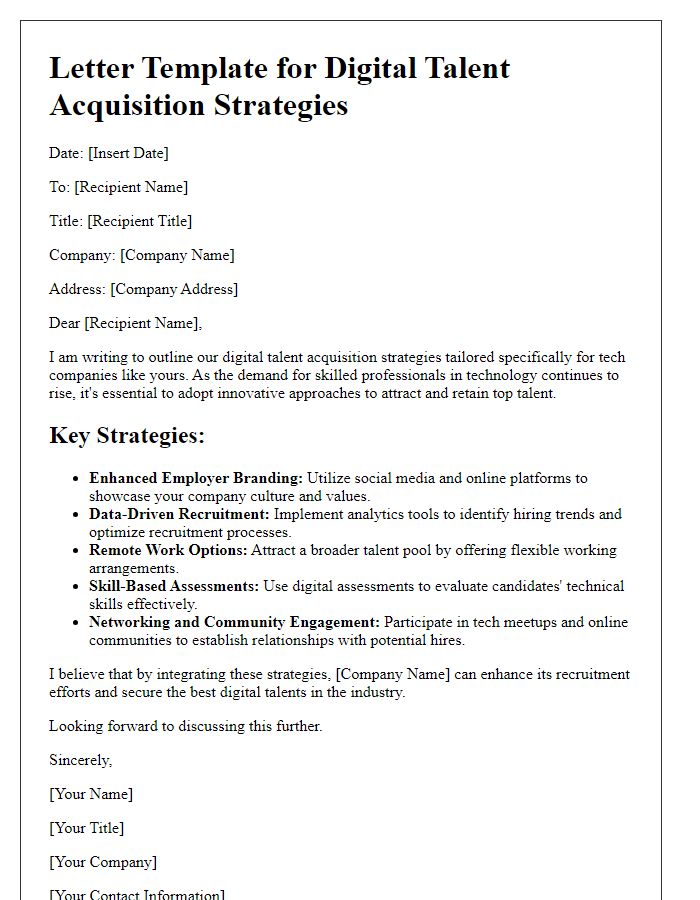
Letter template of inclusive talent acquisition strategies for diverse workplaces.
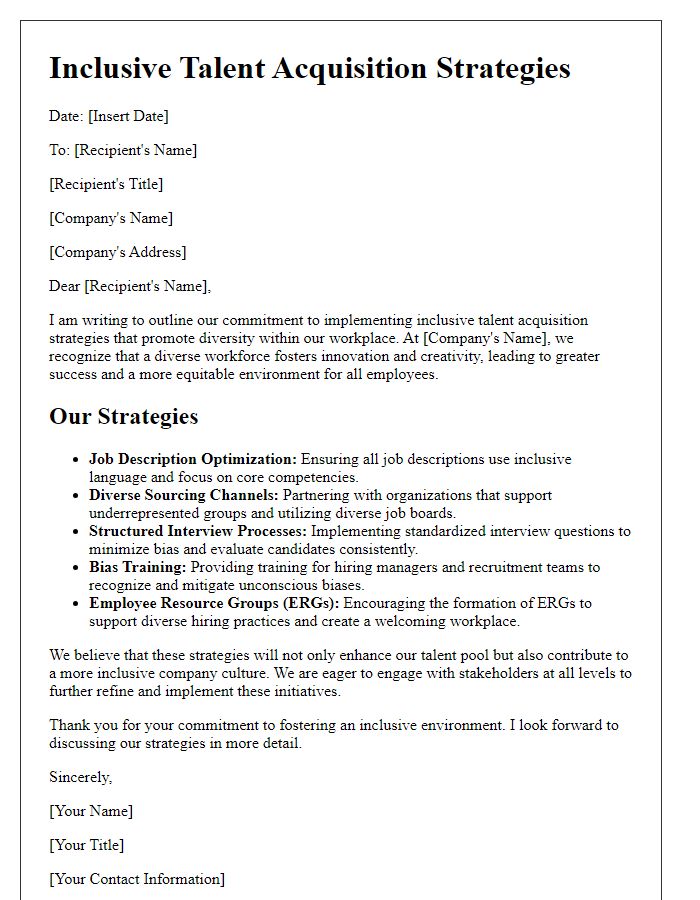
Letter template of rapid talent acquisition strategies for seasonal hiring needs.
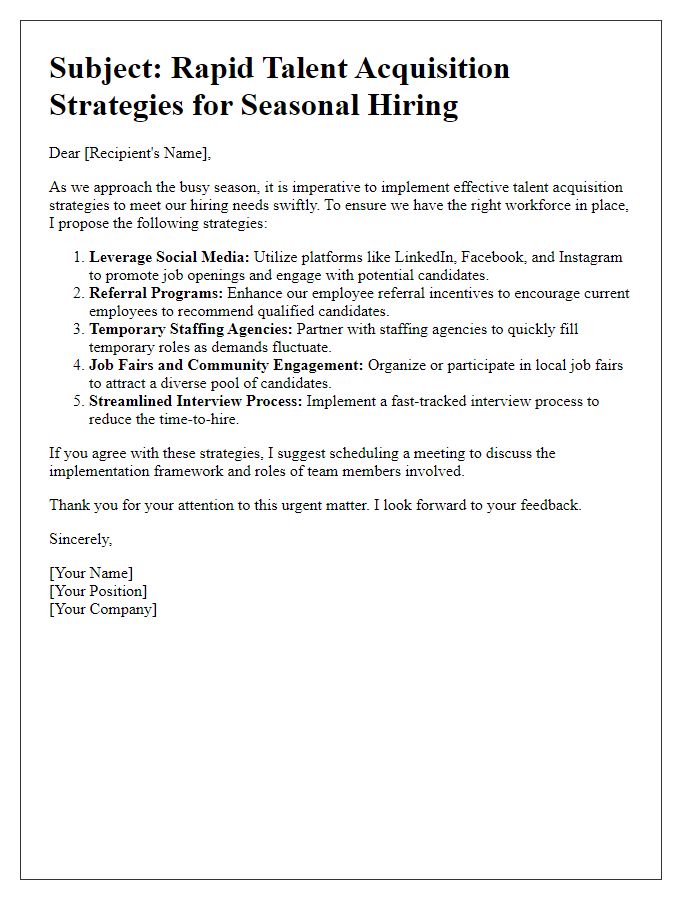
Letter template of personalized talent acquisition strategies for candidate engagement.
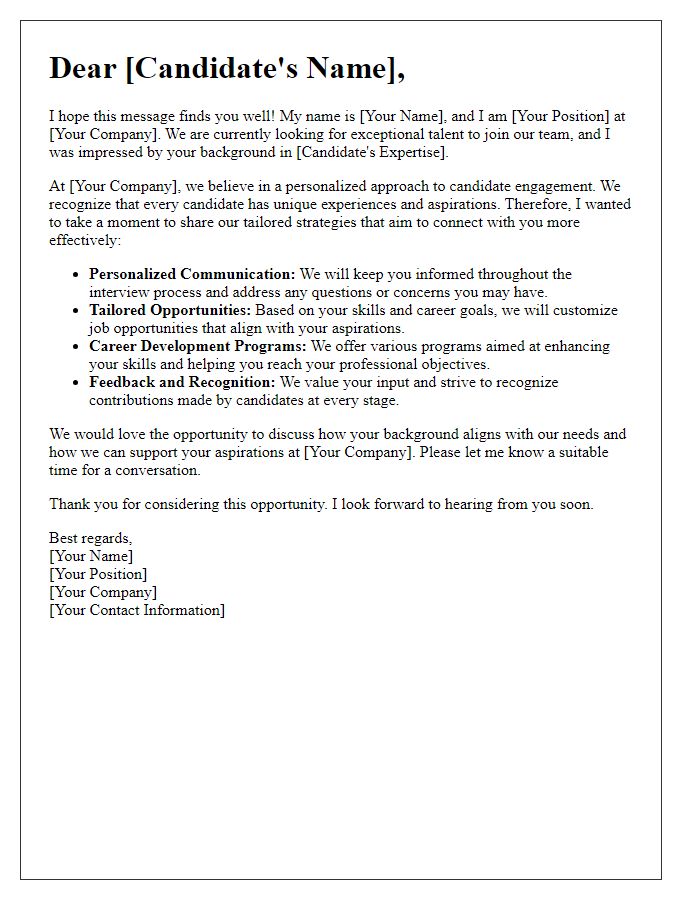
Letter template of data-driven talent acquisition strategies for analytics-focused organizations.
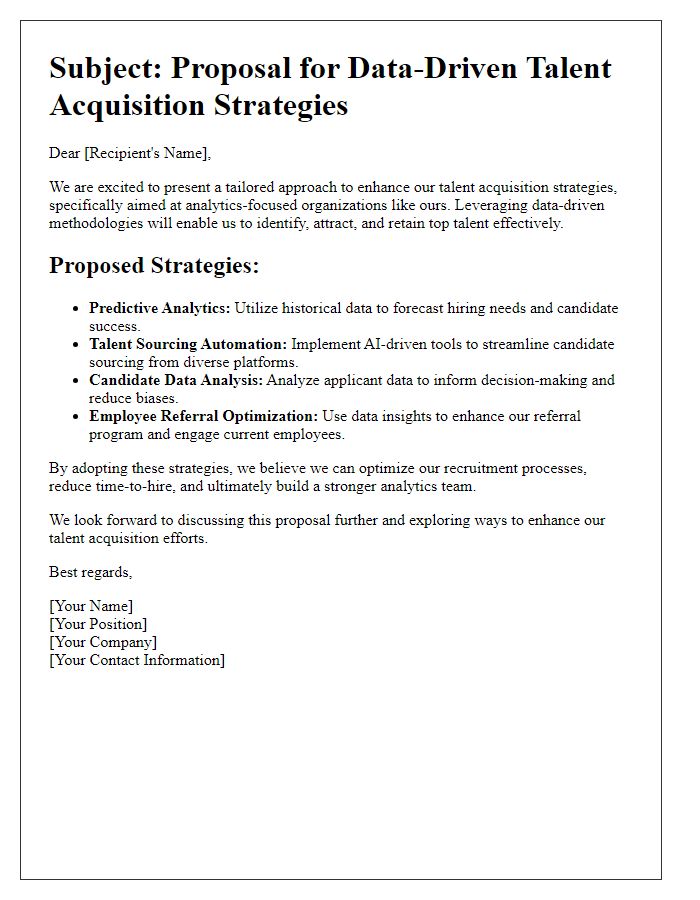
Letter template of collaborative talent acquisition strategies for cross-departmental initiatives.
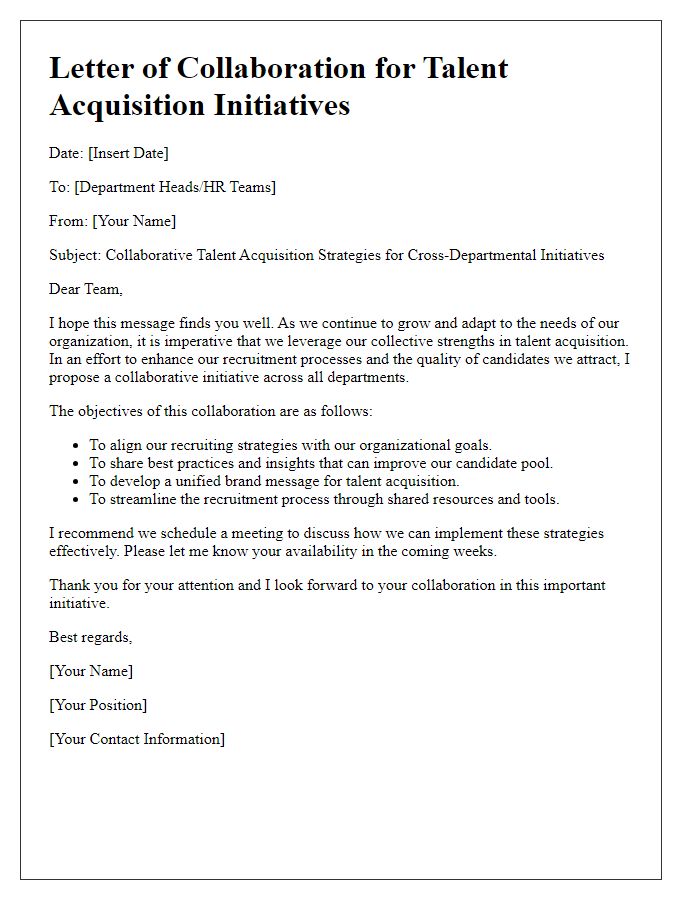

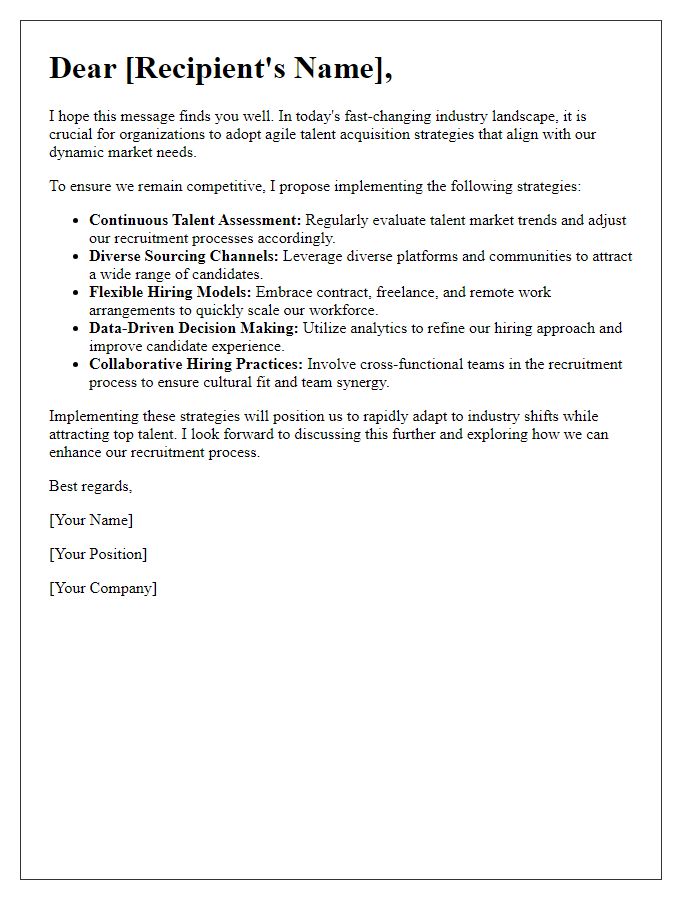


Comments